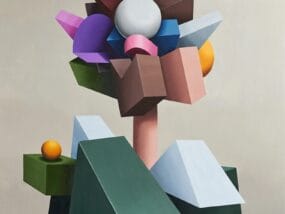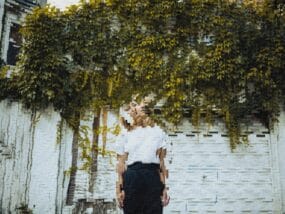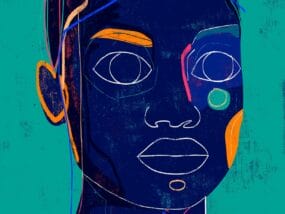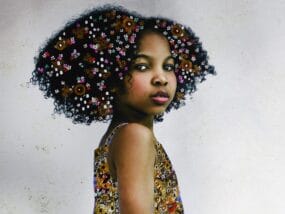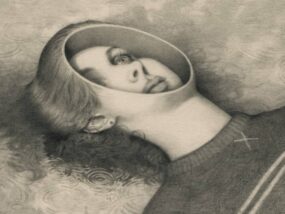Art
#abstract
#Jason Boyd Kinsella
#painting
#portraits
Using the Building Blocks of Myers-Briggs, Jason Boyd Kinsella Puzzles Together an Expressive Cast
May 9, 2024
Grace Ebert
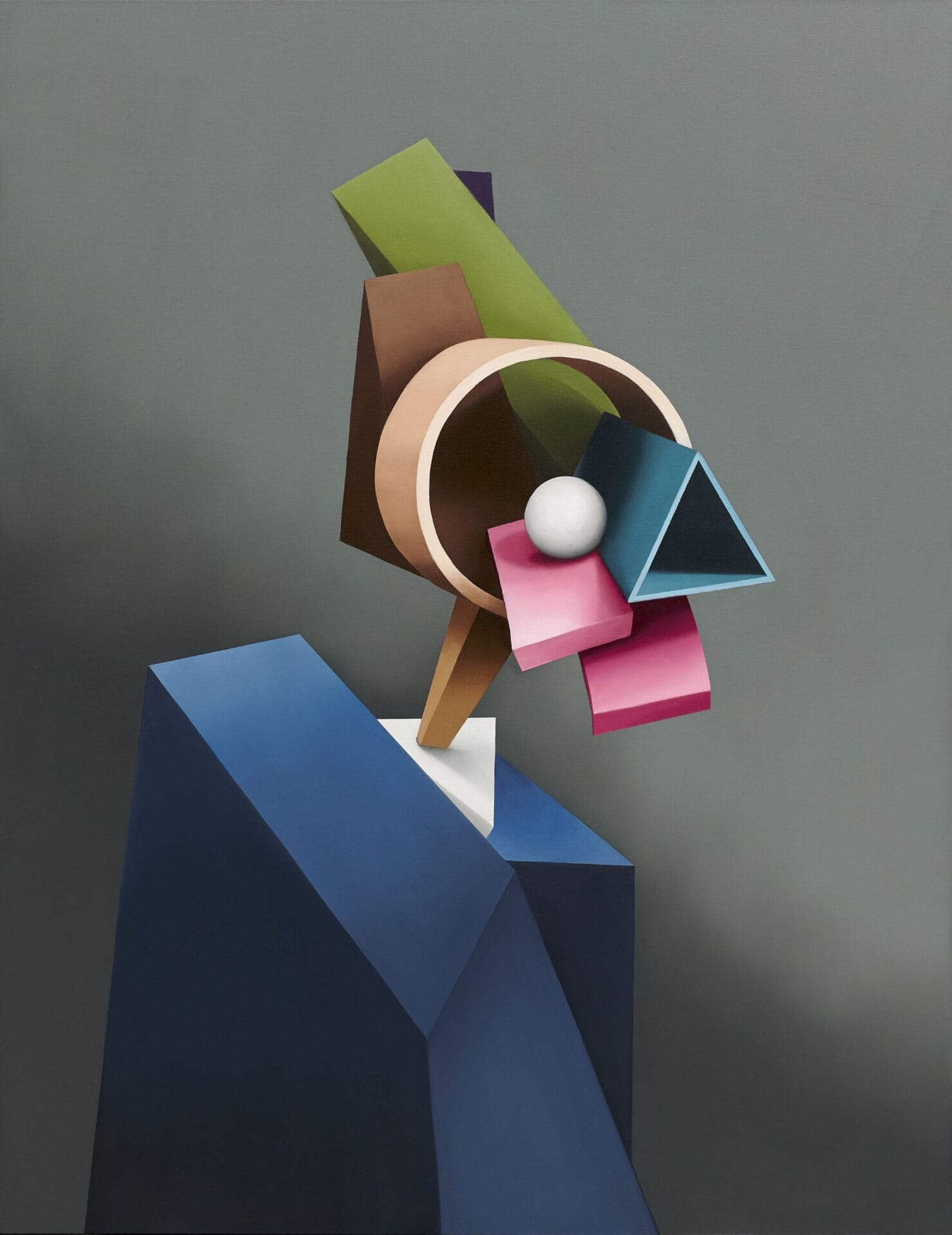
“Angus” (2023), oil on canvas, 61 x 47 inches. All photos by Andris Søndrol Visdal, courtesy of the artist
and Perrotin, shared with permission
“For me, the studio is a place of discovery,” says Jason Boyd Kinsella (previously). “It maybe sounds silly, but it’s a little bit like a Christmas morning when you get a gift, and you’re excited to open it because you don’t know what’s inside… Something is going to be revealed, and I am excited to see what it is.”
The unexpected encounters Kinsella describes arise naturally in his Oslo studio as he conjures enigmatic characters. Large-scale canvases—his preferred size is 20 x 100 centimeters—line the walls of the airy, industrial space and allow him to envision life-sized figures he confronts as he paints. This positioning creates a sort of dialogue between the two, which he approaches with openness and curiosity as if meeting someone for the first time.
Kinsella often begins with a rough, preliminary sketch that pulls on a few emotional threads and helps to lay the foundation for a temperament to emerge. “Looking back at (the sketches), very often I’m struck with the feeling that the person I’m looking at in one of these drawings is someone that’s very familiar to me. It’s really about discovering feeling as opposed to being super rational,” he adds.
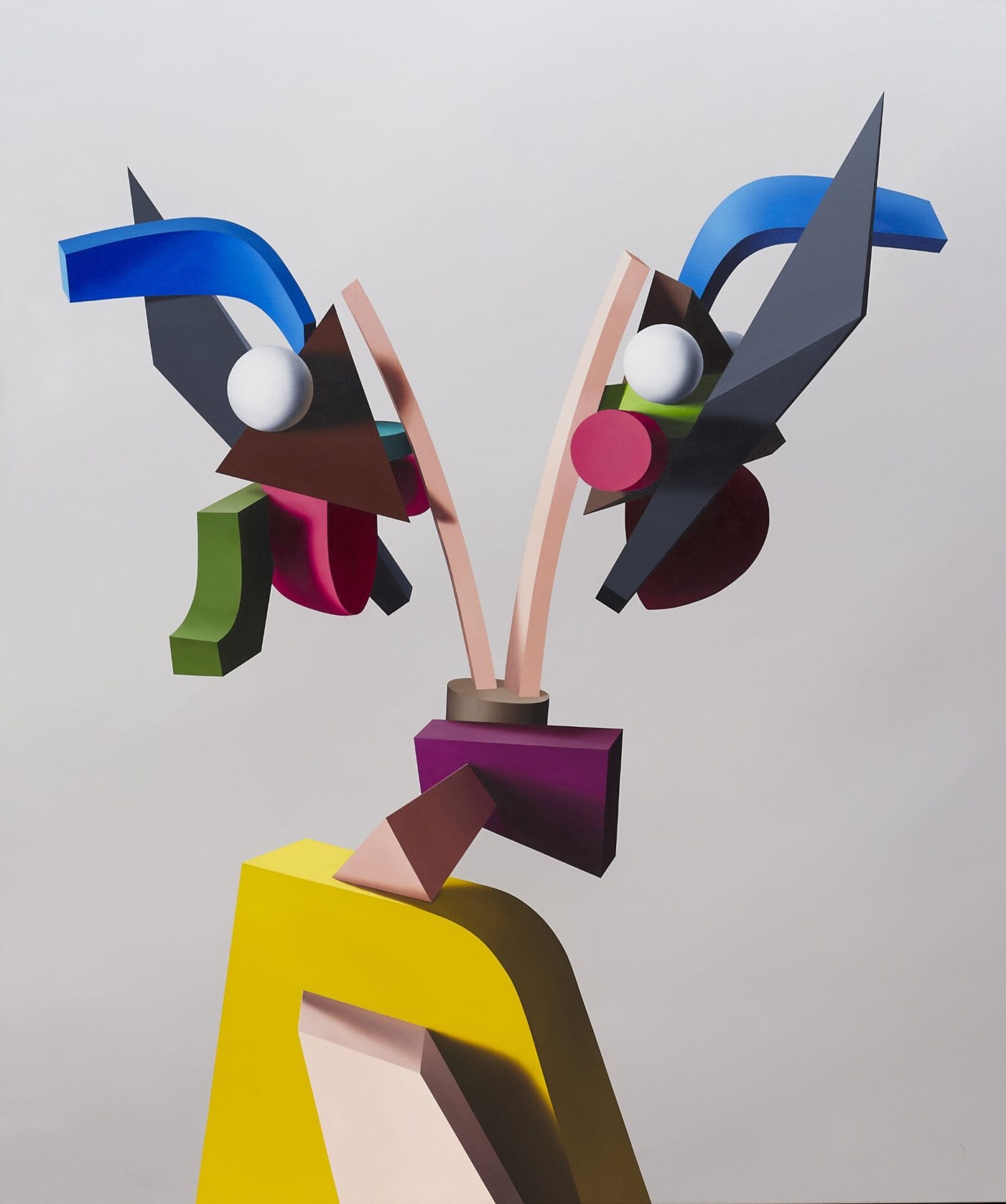
“Mille (One)” (2023), oil on canvas, 73 x 61 inches
Like a jazz musician who practices improvisation and gains confidence in spontaneity, Kinsella has learned to follow his intuition. He might layer a pair of bubblegum pink planks or bisect a face with two peach columns, decisions that, like chord progressions and syncopation in an unrehearsed run, are made more interesting by their surrounding components. “You can look at sheet music and understand the individual notes themselves,” the artist says, “but it’s only when they’re assembled and played that you really get the true magic of it.”
He constructs a persona in the way that many of us build the public-facing identities flooding our social media profiles. His figures are complex but not messy, their feelings compartmentalized in perfectly round spheres and angled forms. Based on the 16 possible outcomes of the Myers-Briggs Type Indicators, the subjects fit into neat constructions that resemble something familiar but are uniquely puzzled together, each shape nested into an individual spot.
The artist first encountered the personality test after his mother gifted him a book with the questions when he was growing up in Toronto. He answered the prompts and recognized himself in the outcomes: his introversion, intuition, and empathy were all easily identifiable. “There was this realization that we’re all made up of the same stuff, right? All of these simple components are very interchangeable depending on how you answer these questions,” he says. Although he didn’t think much about the book after that, it followed him around and slowly seeped into his practice, eventually becoming the backbone of his work.
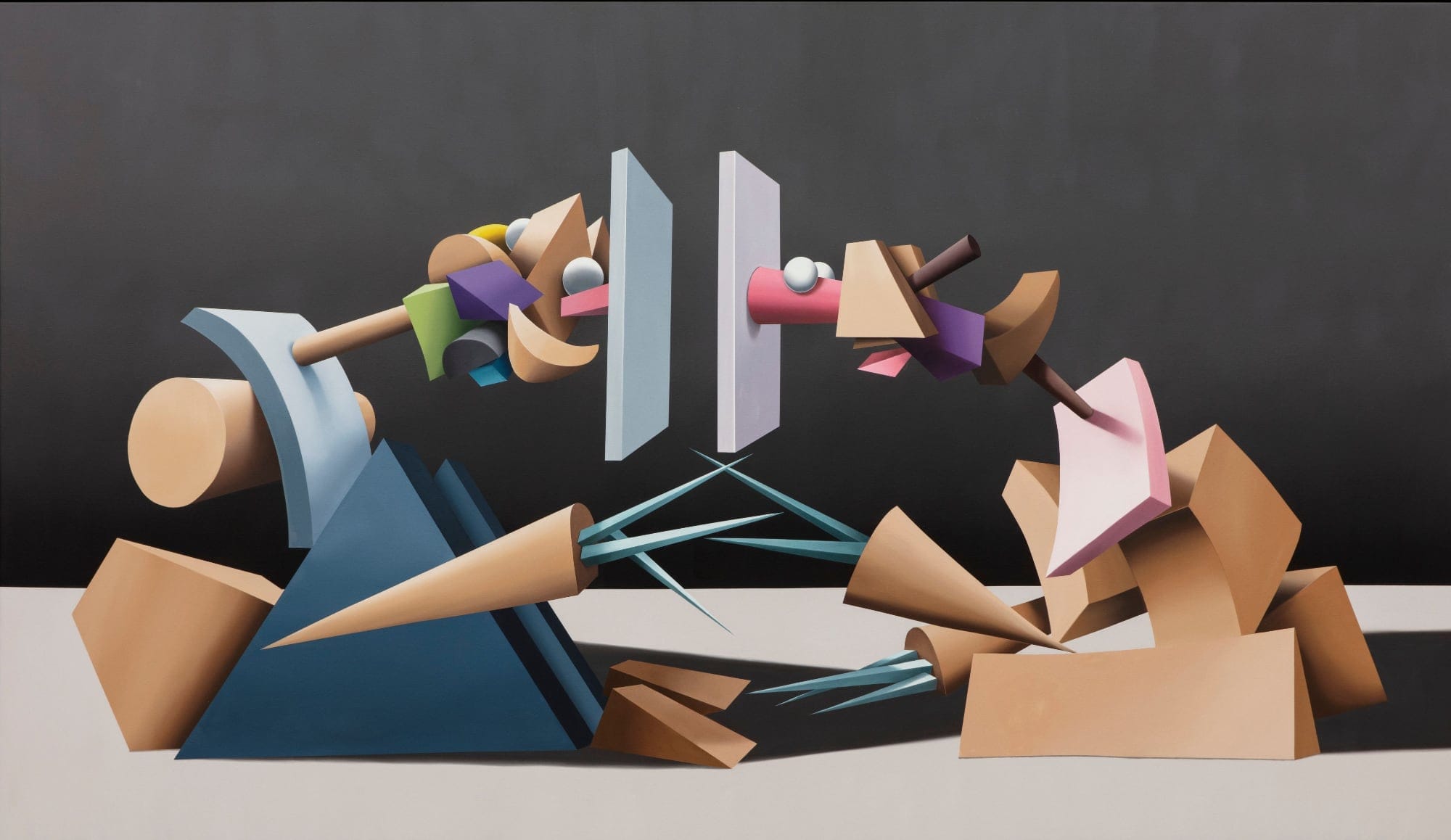
“Connection” (2023), oil on canvas, 87 x 138 inches
Earlier this year, Kinsella opened Emotional Moonscapes at Perrotin in New York, where his painted portraits were on view alongside sculptures and video. In addition to singular figures, pairs of people appeared in this show for the first time. “The Twins” depicts siblings in pink and blue plainly conjoined by a horizontal bar, while “Connection” is more eager and complicated. Two seated characters inch forward in hopes of interacting, only to find the other just out of reach.
Like realistic portraits, these abstract personalities aren’t static. Experiences offer new perspectives, and over time, our understandings of ourselves and the world shift. Kinsella’s “Mille” portraits draw on the inevitability of change and portray a figure at varying points in life. The first in the series features a disjointed face that plays outward, while the second is tightly constructed, the same shapes rearranged into a recognizable but new configuration.
Stripping away outward appearances in favor of fundamentals, Kinsella looks to emotional DNA, how it sequences within an individual and replicates over time. As Max Lakin writes about the body of work, the artist’s “presence wrapped up in his pictures… a feeling that hangs between the shapes.” The portraits suggest that intimacy is about filling in the gaps and finding space where connections flourish. “If you want to know what’s happening in my life, just look at my work. I’m baked into every single piece,” Kinsella says.
In August, he will open his next exhibition, Ghost in the Machine, at Perrotin in Seoul. Until then, find more of his work on his website and Instagram.
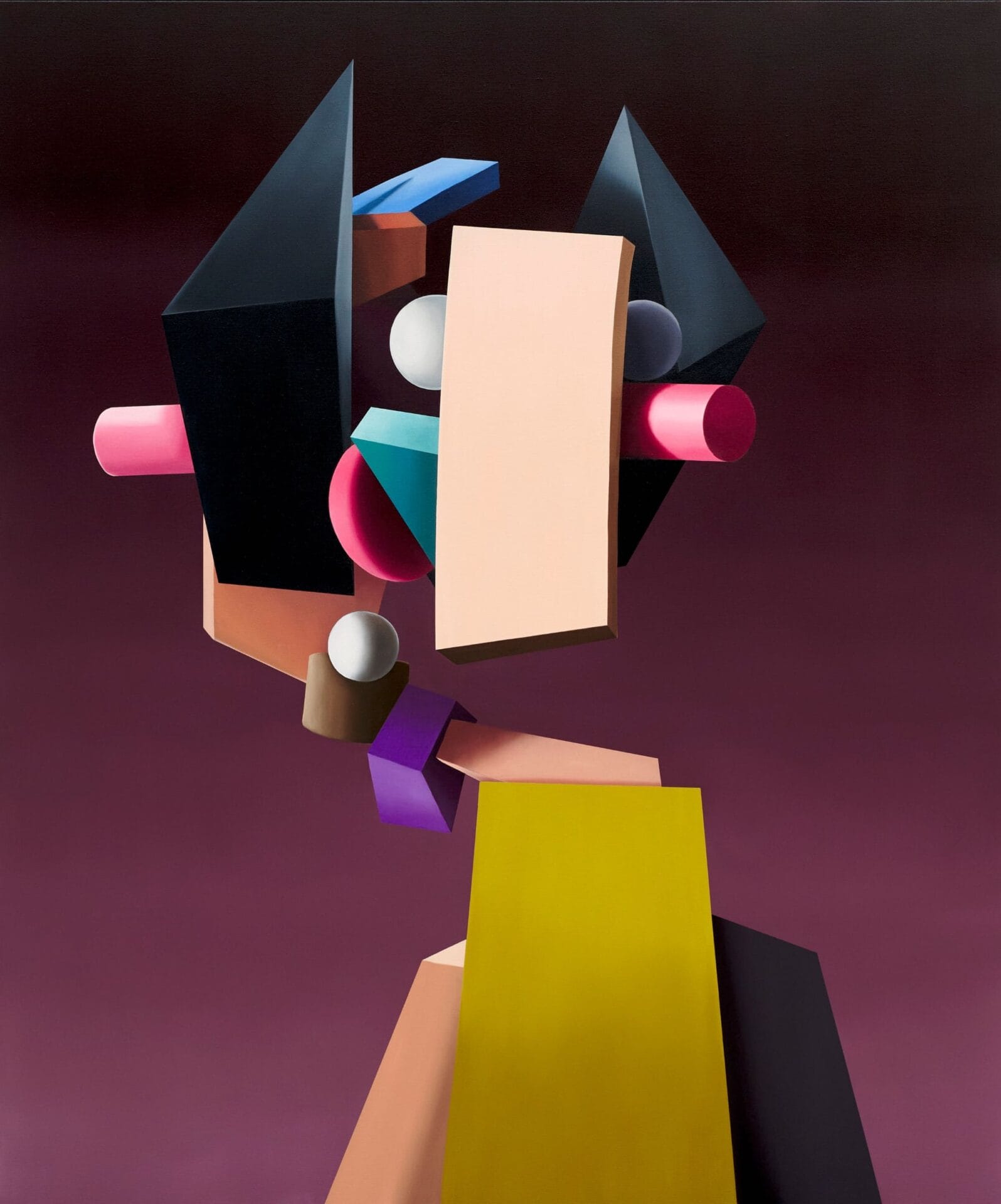
“Mille (Two)” (2023), oil on canvas, 73 x 61 inches
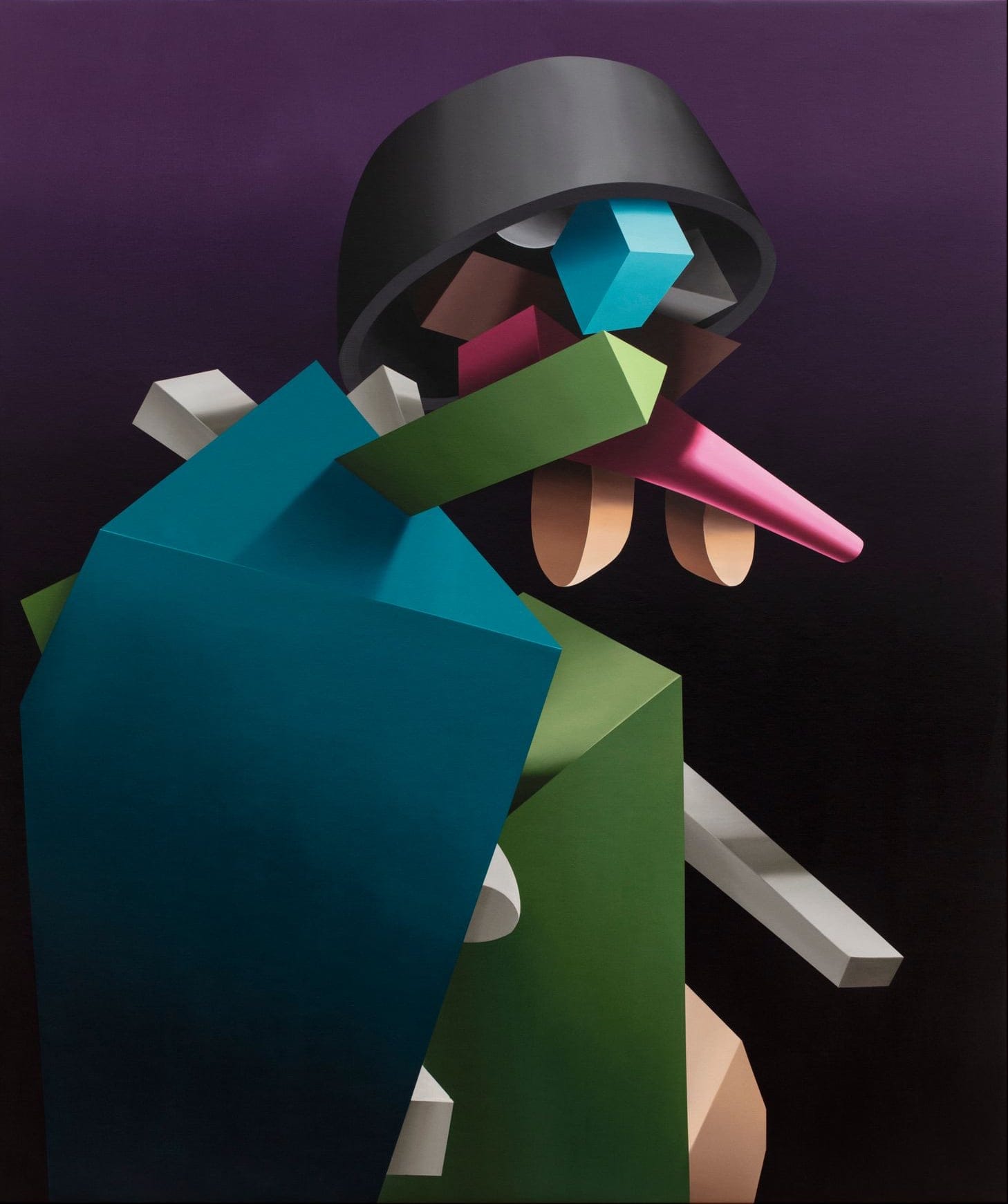
“Rob” (2024), oil on canvas, 73 x 61 inches
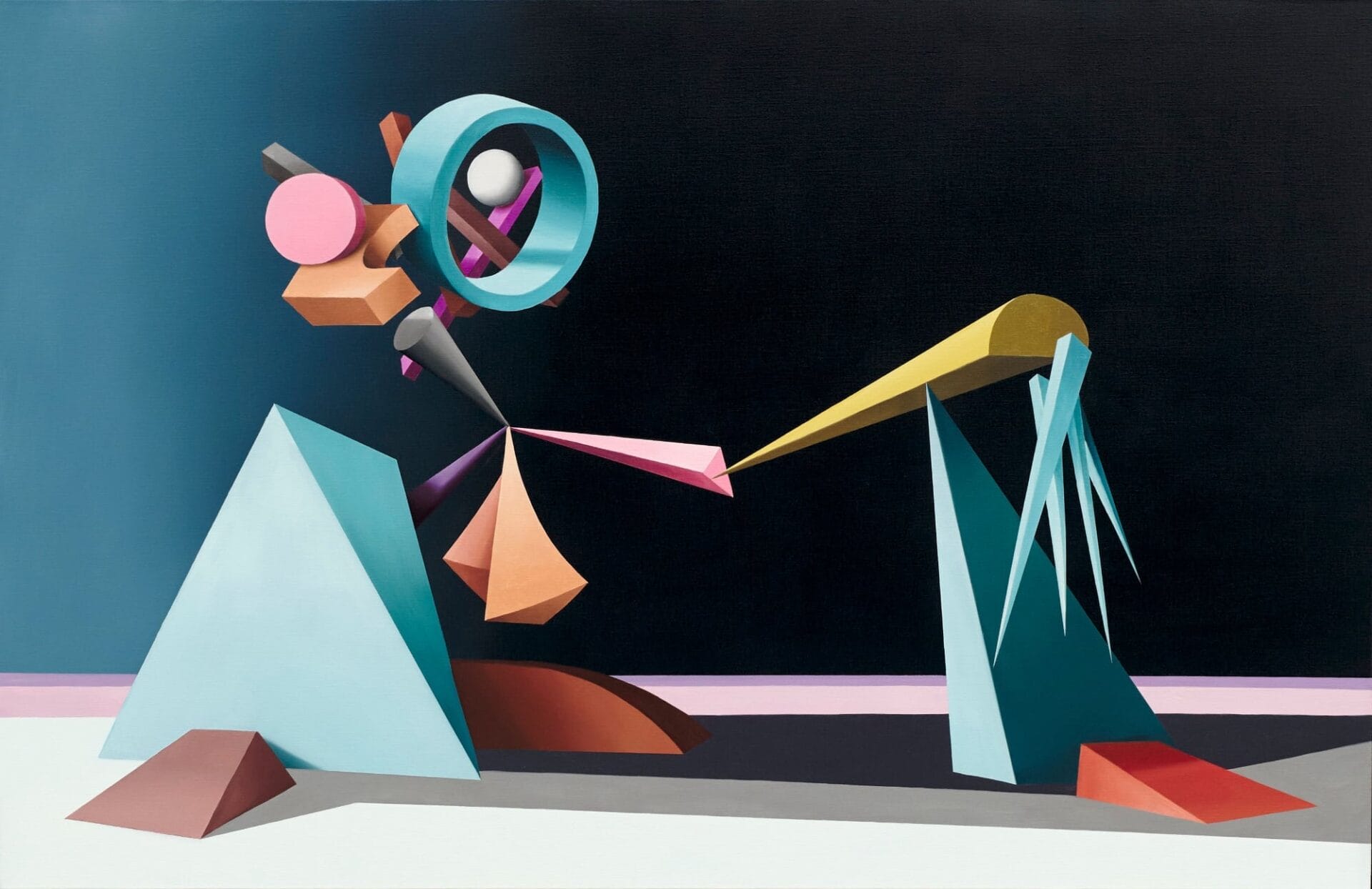
“Susan” (2023), oil on canvas, 39 x 61 inches
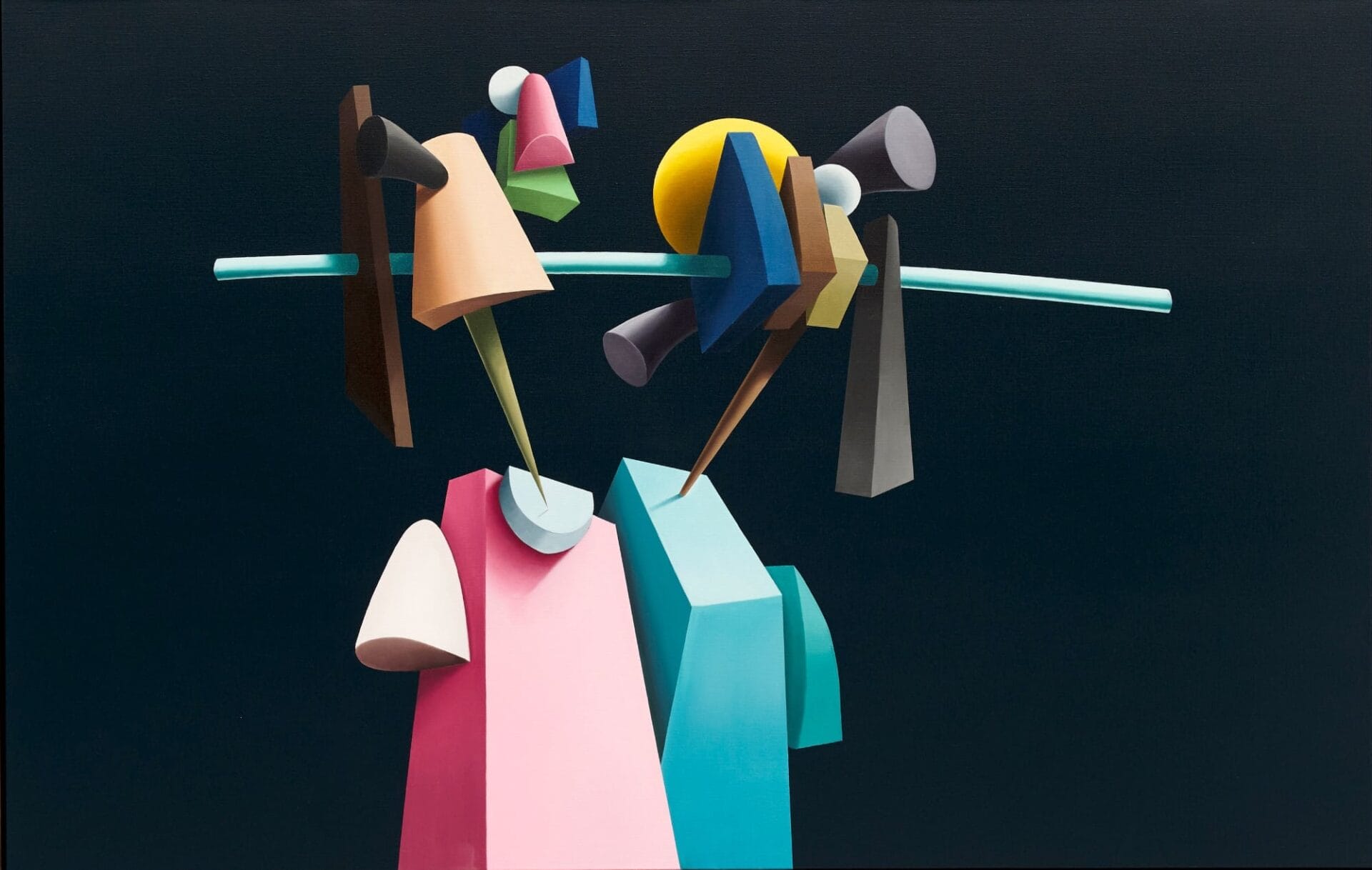
“The Twins” (2023), acrylic and oil on canvas, 45 x 71 inches

“Michael” (2023), oil on canvas, 73 x 61 inches
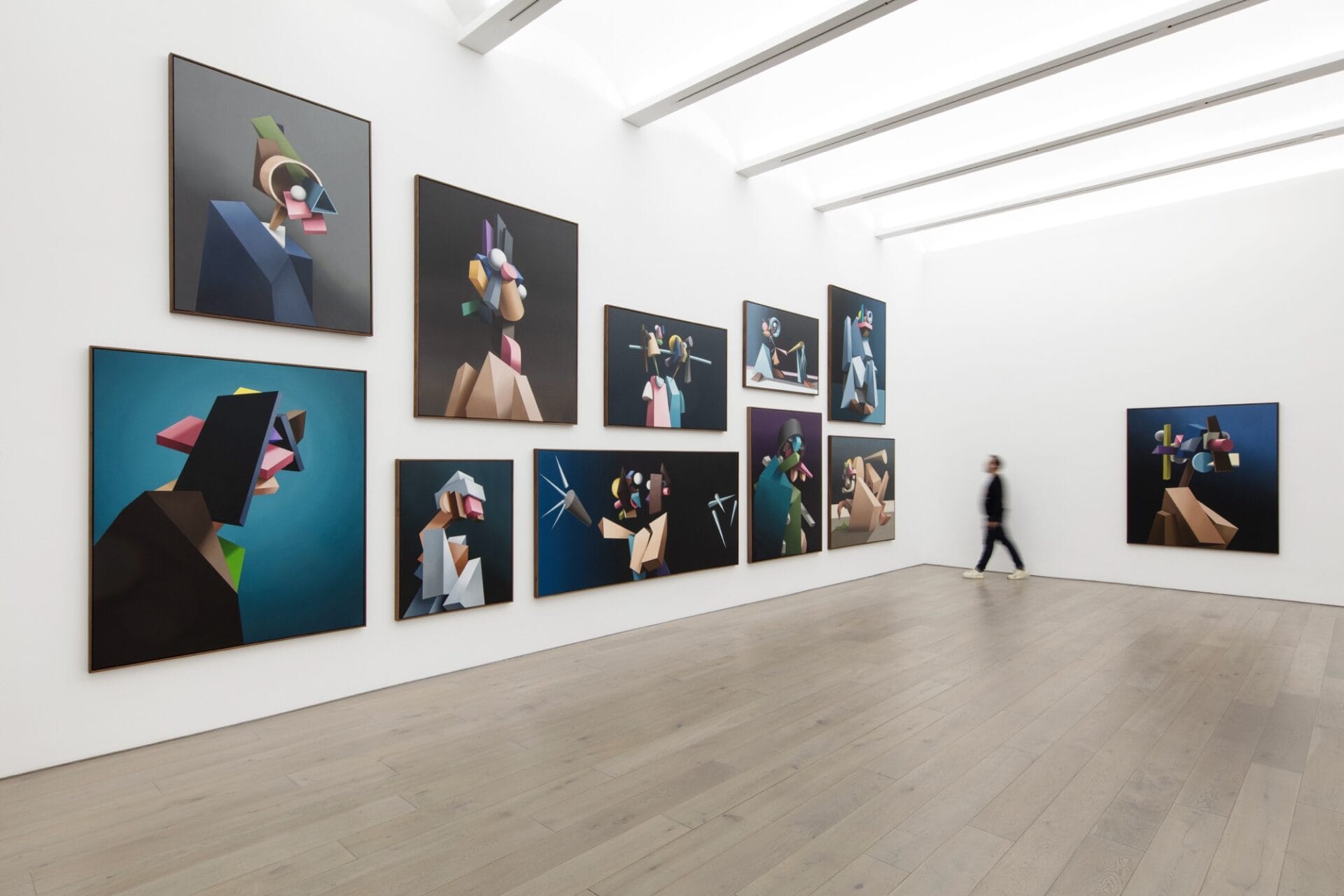
Installation view of ‘Emotional Moonscapes’

The artist in his studio
#abstract
#Jason Boyd Kinsella
#painting
#portraits
Do stories and artists like this matter to you? Become a Colossal Member today and support independent arts publishing for as little as $5 per month. You’ll connect with a community of like-minded readers who are passionate about contemporary art, read articles and newsletters ad-free, sustain our interview series, get discounts and early access to our limited-edition print releases, and much more. Join now!
Share this story
This article comes from the Internet:Using the Building Blocks of Myers-Briggs, Jason Boyd Kinsella Puzzles Together an Expressive Cast


